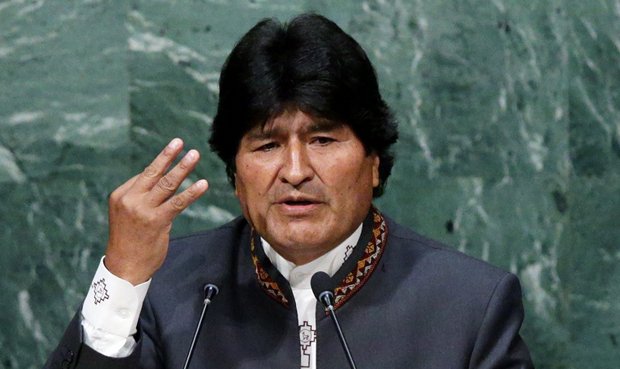Faced with the serious situation in Bolivia that has led its president Evo Morales to resign, the International Humanist Party expresses its rejection and condemns the coup d’état that the opposition has perpetrated in this country.
We humanists reject and condemn the methods that the opposition has used in this crisis generated around the Bolivian elections. When the government had accepted new elections, the opposition has shown that it does not care so much about the electoral result as it does about evicting President Morales and his party from the government, whatever that may be. They have not attempted a dialogue solution to the conflict, on the contrary, they have led to the rupture of peaceful coexistence in the country using bullying and physical violence and have irresponsibly placed all the people of Bolivia in the serious danger of a confrontation that would lead to a general disaster and the loss of many human lives.
We are before a group determined to seize power by using violence in all the forms at its disposal. There are groups from Bolivia’s economic right, with support from outside the country, that have never accepted that an indigenous, trade unionist and coca grower has become Bolivia’s president-elect. This president has reduced the poverty rate considerably, has almost eradicated illiteracy, and has given back to the people the country’s greatest source of wealth, hydrocarbons. They will never be forgiven.
We want to send our support to the people of Bolivia and their social organizations, which have developed a process that has achieved social progress for all and for all. Evo Morales is the first and so far only indigenous president of a Latin American people, but the Constitution of Bolivia has given back to all Bolivians rights and freedoms that the majority never enjoyed, and has declared Bolivia’s renunciation of war as a way of resolving conflicts, for which we humanists around the world applaud and admire her.
Evo Morales has chosen to resign to avoid confrontation. It is a gesture that shows that in this conflict there are those who measure their actions and their consequences for the people, and who exacerbate hatred, racism and intolerance without thinking about the human and social cost that it will generate in the future.
We ask that the conflict be resolved in a nonviolent manner, and that the sovereignty of Bolivia be respected. We cannot allow colonialism and imperialism to return to Latin America. We call for new elections to be called in accordance with the law without accepting blackmail or external or internal impositions from violent groups.
The future of Bolivia does not belong to a small group of oligarchs or to foreign powers that try to impose their interests violently, but to all Bolivians and sooner rather than later they will find a channel to express their will freely.
Translation Pressenza London










